| Type | Game |
|---|---|
| Date | 2009-03-04 |
| Tags | platformer, greek mythology |
Don't Look Back
Before I begin this review, I urge you to play the game. There are links there to the online and downloadable versions of the game. It only takes a few minutes, and much of the enjoyment will come from learning the story as it’s revealed. That warning given, I’ll not refrain from spoilers below.
The game opens with the player character standing at a grave. We are instructed that we may use the arrow keys to move, and, being the seasoned gamers that we are, we take that as an invitation to proceed to the right.
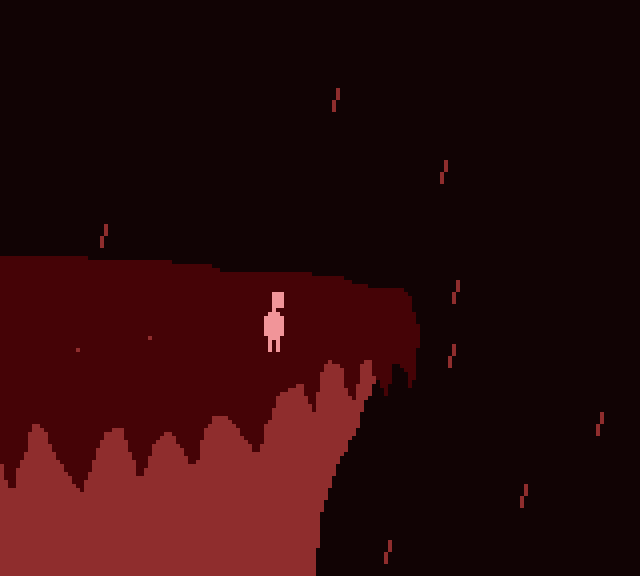
After a bit more instruction on the controls, we come to a cliff. There is no other option than to leap from the cliff, whatever the consequences may be. Fortunately, in typical platformer fashion, falling from a great height is no hindrance, and the game proceeds like any other platformer.
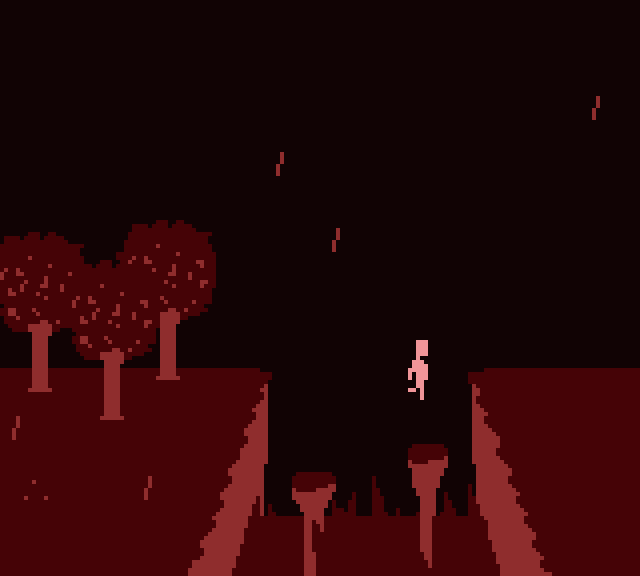
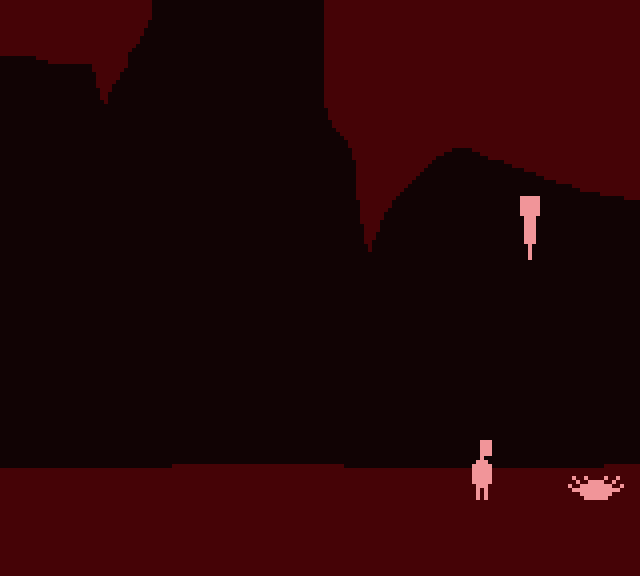
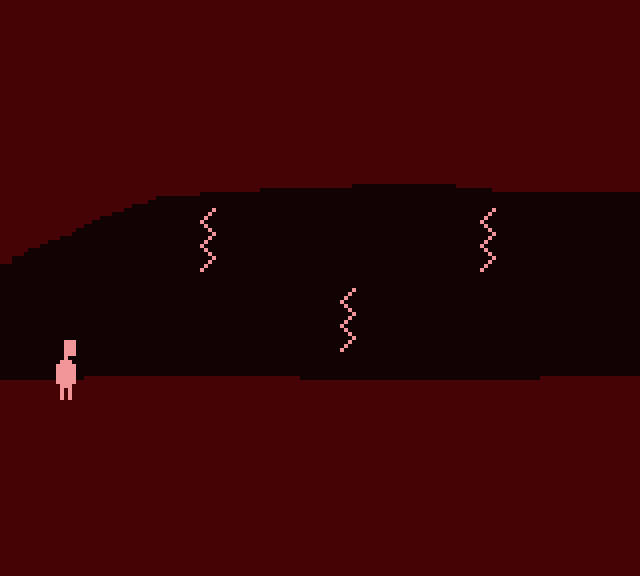
We eventually pick up a gun, and we have the usual jumps to make, spiders to kill, and falling spikes and other moving obstacles to dodge. Failure means that the screen is restarted, with no other consequence.
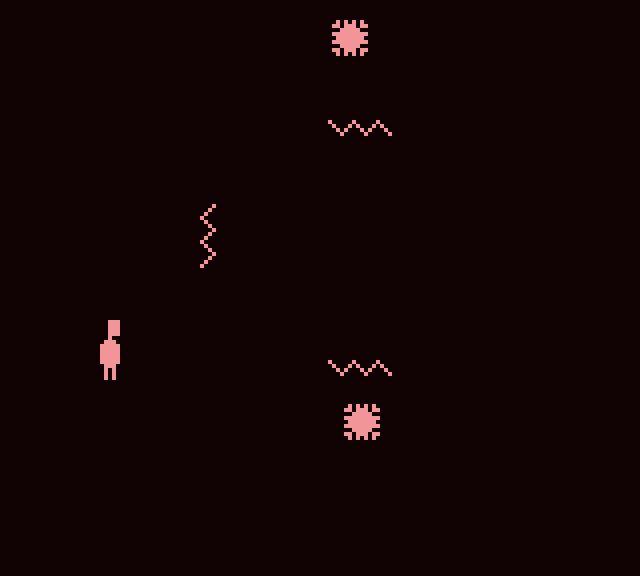
After a bit, though, we enter an area that is dark–though the enemies can be seen, the walls and floors are hidden. This doesn’t make the puzzles that much harder, but it certainly adds to the atmosphere: walking through a dark, seemingly empty room, when sudden spiders start to drop from the sky just ahead of you; you try to run past only to be stopped by a hidden wall; now there’s no hope of dodging–-they have you! And the screen restarts and you must try again.
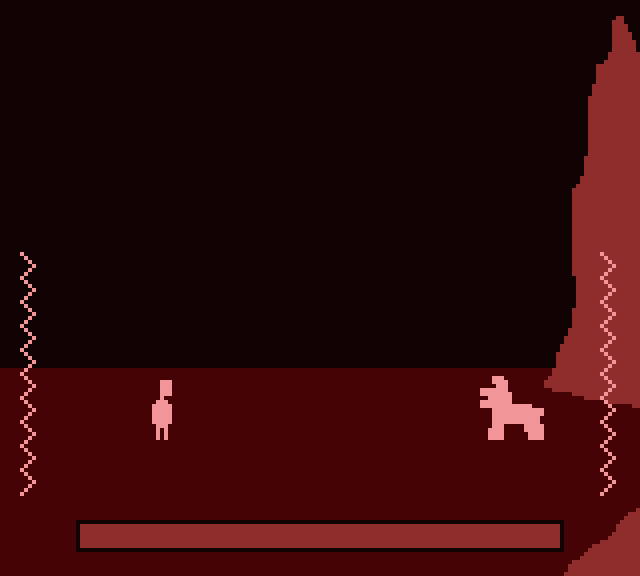
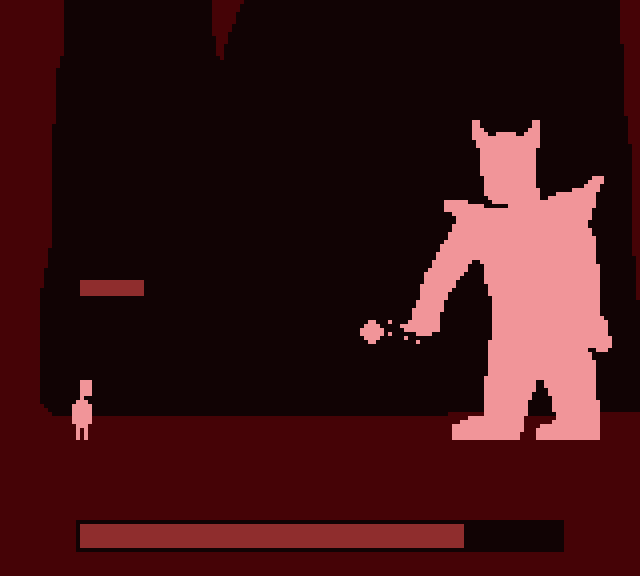
The darkness doesn’t last forever, though, and the game continues. There are two bosses to face before we reach the deepest part of the cave, and they may be defeated in the usual way–-dodge the attacks, exploit the weakness. Finally, after all this, we can see what was our goal in entering this place.
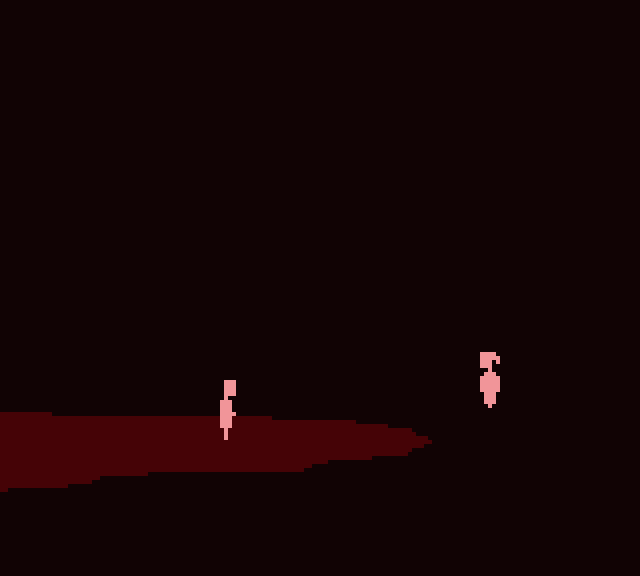
Here floats the ghost of a girl–-undoubtedly, the ghost of the girl whose grave we stood before at the beginning of our quest. But the game does not end here; we must now escape the cave with the spirit following.
There remains one caveat, though: you must not look back. Should you turn to face the spirit of the girl, she will fade away like so much mist. And here it becomes clear what the title means, and just what story is being told. This is a retelling of the story of Orpheus and Eurydice, and our hero has journeyed into the underworld to retrieve the spirit of his beloved.
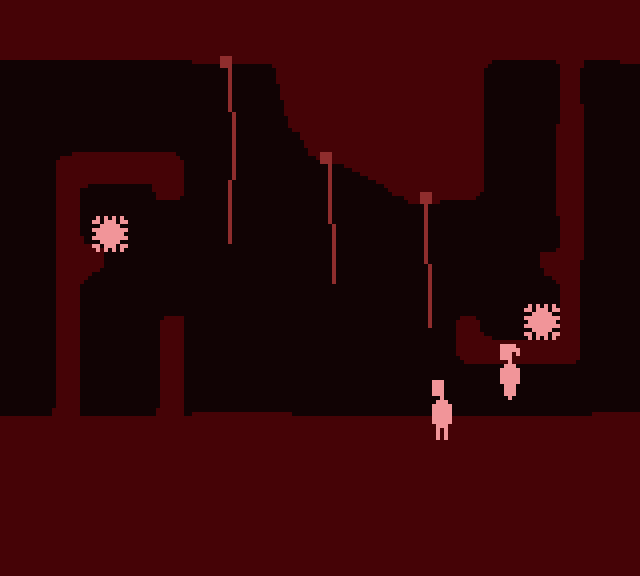
So, we make our way back out. The puzzles are different (since we take a different route), and are tailored to our new weakness (the inability to turn back). I found the above screen particularly heart-breaking, since I missed the jump for the ropes more than once, and had no choice but to turn back, consigning the spirit to her fate. Granted, the screen restarts, but being forced by my ineptitude to deliberately entrap the spirit in the underworld was a cruel punishment indeed for my failure.
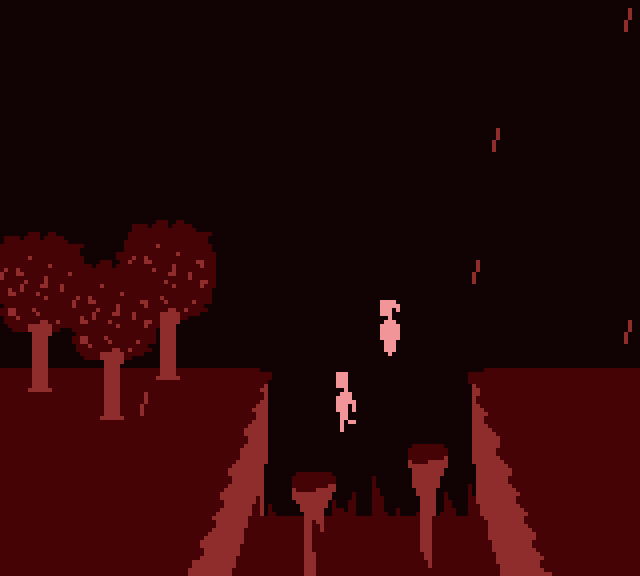
Now, having faced all the trials both on the way into the cave and back out, and having resisted the temptation to look back on the face of our beloved, we reach familiar territory. For better or worse, the endgame is near, and we will see what reward we shall reap for our efforts.
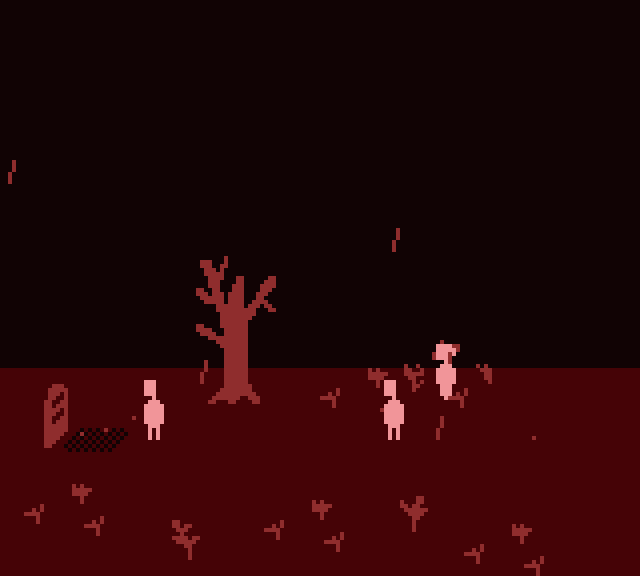
Finally, we return to find… our hero, still standing before the grave. Moments later, both the spirit and the player character vanish, carried away by the winds, and the title screen returns. All this effort, everything was only imagined by the mourning hero–wishing that he could indeed journey to the underworld to save his beloved, though ultimately no more able than Orpheus to carry this out.
The revelation, without words, of this story-–the hero’s motivation and intent, and the eventual resolution of the story–-is very well done. As a platform game, Don’t Look Back is only average, but as a piece of storytelling it is really excellent. Everyone should absolutely spend the few minutes necessary to complete this game. The post on the author’s blog has links to each (identical) version of the game, so go there now and play it.
- Gameplay: 6/10
- The puzzles aren’t hard, but they’re well designed, and the controls are pretty good.
- Graphics: 8/10
- The simplicity of the pixellated graphics is all part of the charm, and the monochrome red color scheme sets the mood nicely. The only complaint I have is that it wasn’t clear until after I retrieved the spirit and realized this was the tale of Orpheus that the dog was Cerberus, or that the final boss was Hades–the sprites weren’t identifiable. Of course, there’s only so much you can do with that resolution, and it was all made clear eventually, so only two point off.
- Sound: 9/10
- The music fits the game very well, and the sound effects are similarly well done. Cerberus’s growling was really frightening, and the sort of gasp/sigh when you look back and the spirit is swept away is very nice, too.
- Story: 9/10
- The story is very simple, and a classic. The revelation of the plot is very well done, and the ending, too, is good.
- Personal Slant: 9/10
- Total: 8.2/10
The platforming aspect could have done with better and more challenging puzzles, but the storytelling was right on. I had fun with the puzzles and the desire to see how it would all end kept me going, full of anticipation. Don’t Look Back is short, and well worth the time it takes to play.
| Name | Role |
|---|---|
| Terry Cavanagh | Developer |